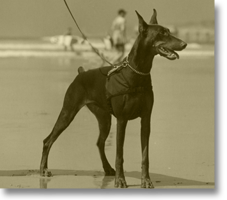 PLEASE READ THE FOLLOWING. It could save your dog’s life:
PLEASE READ THE FOLLOWING. It could save your dog’s life:
FOOD temptations:
Chocolate can cause diarrhea, vomiting and fatal heart arrhythmias. Remember how clever dogs are and hide that candy!
Grapes and Raisins shut down the kidneys which is often fatal. Coffee, Caffeine, Alcohol, Avocado, Macadamia Nuts, Yeast Dough, Raw Meat, Raw Eggs, Xylitol, Onions, Garlic, Chives, Milk, Coconut Milk and Salt are all toxic to dogs and may be fatal.
Chicken and turkey bones can splinter their digestive systems. Thousands of dogs die annually when owners unwittingly give them chicken carcasses and the turkey carcass after Thanksgiving. Save it for soup!
Ham bones and skin, turkey and chicken skin and fat often cause gastritis, diarrhea, life threatening obstructions or pancreatitis. A sick dog can be grumpy and grumpy pups often bite! Keep Kong toys and Canine Genius Leos stuffed with treats, sticky kibble, raw string beans, carrots and apple chunks available.
The ‘Rule of Thumb’ is, If you cannot sink your thumb nail into a toy or treat, do not give it to your dog. Slab fractures of the fourth pre-molar teeth are not uncommonly caused by hard objects chewed on by dogs.
Alcohol is toxic for DOGS AND CATS, even in small amounts. Many of them like the taste of beer, wine, and other alcohol. These can all be deadly to them. Your friends might think it’s fun to watch them drink alcohol, but you won’t think it’s fun to watch them have convulsions and die. By the way…. never give your dog human pain meds and NEVER give a cat aspirin, It is deadly to cats.
Small rawhide sticks and rawhide toys that unravel can cause obstructions in dogs’ throats and blockages in their intestines and can be fatal.
Other dangers:
Candles attract dogs, especially puppies, (and of course those inquisitive cats!) and can be a hazard both from ingestion and fire. A dog’s tail and long hair can catch fire and result in a disaster.
Matches and lighter fluid—always keep them out of a dog’s reach. Certain types of matches, for example, contain chlorates, which could potentially damage blood cells and result in difficulty breathing.
Antifreeze contains ethylene glycol which causes irreversible kidney damage, and even death, when ingested even in small amounts. Unfortunately antifreeze is sweet to taste and found in puddles in parking areas and gutters. Both cats and dogs walk through it and lick it off their paws. Clean up all spills immediately. Purchase only products that are marked ‘pet safe’ and do not contain ethylene glycol.
Commercial food strings may contain paint or toxins in the preservatives which are poisonous to dogs.
Some dog toys can be dangerous. Be sure that the toys you leave with your pups do not contain squeakers unless the squeaker is part of the rubber mold, not plastic or metal. Dogs can ingest them into their stomachs and intestines and/or aspirate them into their lungs causing grave consequences. The plastic squeakers do not show up on x-ray or sonogram.
Diet Change. Do not vary a dog’s diet, EVEN FOR ONE MEAL. As much as dogs love goodies, keep them on their normal diets. Any change, even for one meal, can give them severe indigestion and diarrhea. Again, Chocolate, Coffee, Caffeine, Alcohol, Avocado, Macadamia Nuts, Grapes, Raisins, Yeast Dough, Raw Meat, Raw Eggs, Bones, Xylitol, Onions, Garlic, Chives, Milk, Coconut Oil and Salt are all toxic to dogs and can be fatal.
Stay alert. Keep these items out of a dog’s reach. Sit or lie down on the floor of each room and look up and around the room asking yourself what would interest you if you were a bored, confused or excited dog, cat, bunny or bird. Remember that it’s not just dogs who get into trouble. Watch all of your pets closely. Don’t let them surprise you with something you never dreamed they’d get into. Holiday seasons can be very stressful times for pets. Try to keep as normal a daily schedule as possible. Remind every family member and guest to check that doors and gates are closed carefully. Frightened and confused pets often wander away from home. A stay at the Animal Shelter is often not pleasant and there’s no place like home for pets especially during the cold weather. Microchip your dog. Millions of pets have been returned to their families through the chip program.
Cold weather can be deadly to dogs, especially puppies. Their coats are not ample for these cold nights. Please let them sleep in the house. Limit the time they are outdoors and be sure to dry them off when they come into the house. When they are outside, provide ample water for them to drink and shelter from the rain and cold. A warm sweater or jacket will keep them healthy and happy. Introduce it to them gradually and make it fun to wear. When the temperature drops below 30 degrees, dogs can experience frostbite!
If you take your dog to the snow, PUT BOOTIES ON HIS FEET. If you can’t walk in the snow barefoot, your dog can’t either!
HOT weather can be deadly to dogs, especially long-coated dogs and puppies. Dogs do not perspire the way humans do; they cool by panting but when they’ve panted away all of their fluids, they become dehydrated and can die. By the way . . . it is illegal in California to leave a dog in your car, no matter the time of day or time of year. Thank you, legislators, for thinking about dogs when considering that bill! The police, and even an ordinary citizen, can take a dog from your hot car if the dog is in trouble. Even with the windows wide open and your car in the shade, the temperature in a car can get over 100 degrees very quickly. Remember the police officer who left his police dog in his car? The dog suffered a dreadful death from heat prostration and dehydration. Please do not let that happen to your dog!
If you take your dog to the beach, put booties on his feet as well, or carry him across the sand. The sand can be very hot in the summer and can burn a dog’s foot pads. If you cannot walk across the sand barefoot, a dog can’t either!

